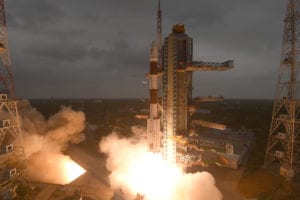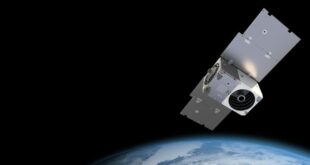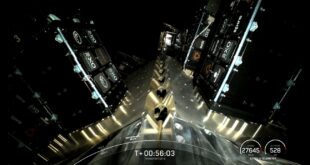
On 27 November 2019, India’s Polar Satellite Launch Vehicle, in its forty ninth flight (PSLV-C47), successfully launched Cartosat-3 along with 13 Nanosatellites from the United States from the Satish Dhawan Space Centre (SDSC) SHAR, Sriharikota.
PSLV-C47 lifted-off at 0928 Hrs (IST) from the Second Launch Pad. After 17 minutes and 38 seconds, Cartosat-3 was successfully injected into a sun synchronous orbit of 509 km. Subsequently, the 13 nanosatellites were injected into their intended orbits. After separation, solar arrays of Cartosat-3 were deployed automatically and the ISRO Telemetry Tracking and Command Network at Bengaluru assumed control of the satellite. In the coming days, the satellite will be brought to its final operational configuration.
“Cartosat-3 is the most complex and advanced earth observation satellite built by ISRO,” Dr. Sivan said. He further added that it was a third generation agile advanced satellite having high resolution imaging capability.
The mission life of the Cartosat-3 is five years. Cartosat-3 will address the increased user’s demands for large scale urban planning, rural resource and infrastructure development, coastal land use and land cover, etc.
The 13 rideshare nanosatellites included twelve from commercial Earth observation company Planet, and one testbed nanosatellite from Analytical Space.
ISRO Chairman Dr. K. Sivan congratulated and complimented the launch vehicle and satellite teams involved in the mission. He also acknowledged the support from Indian Industry.
PSLV-C47 was the 21st flight of PSLV in ‘XL’ configuration (with 6 solid strap-on motors). This was the 74th launch vehicle mission from SDSC SHAR, Sriharikota and the ninth satellite of the Cartosat series.
About 5000 visitors witnessed the launch live from the Viewer’s Gallery in Sriharikota.





